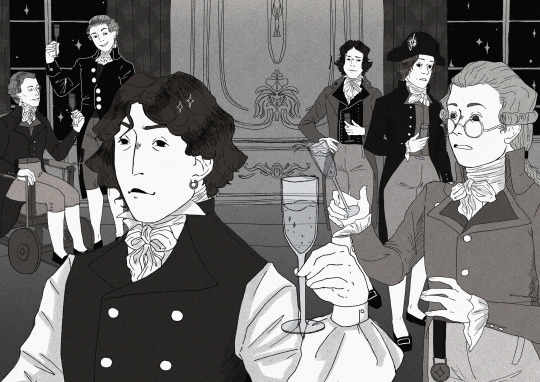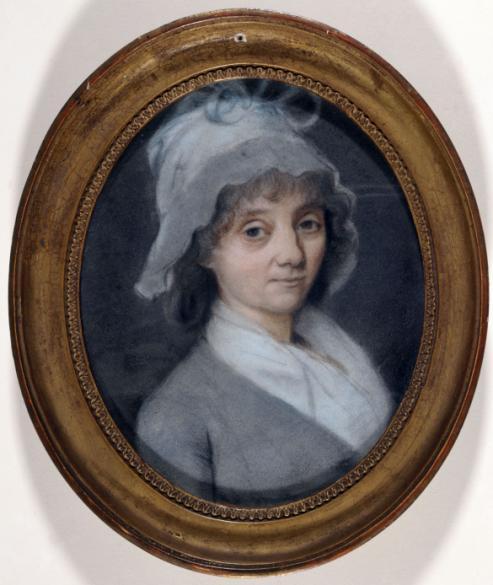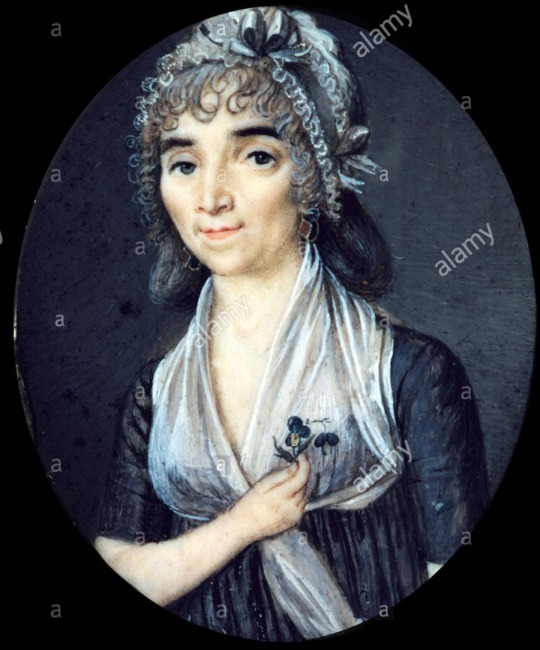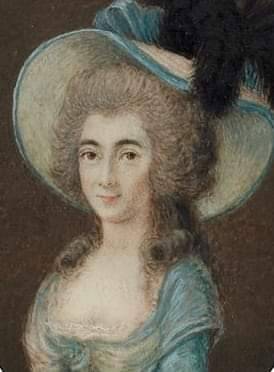#leba
Explore tagged Tumblr posts
Text

It is all out there! ©2019 blueskipper
#blueskipper#elloon#photography#photographer#places#ello#blackandwhite#black and white photography#ello photographers on tumblr#photographers on tumblr#leba#marina#travel#holiday
19 notes
·
View notes
Photo

On August 1st, 2003 Sarah sang "The War is Over" with Kadim Al Sahir at the Beiteddine Art Festival in Lebanon. The Beiteddine Festival is one of the leading festivals in the Middle East. It takes place annually in a magnificent 200-year-old Palace in the Chouf District in the Mount Lebanon Governorate.
5 notes
·
View notes
Text

R13 PRE-FALL 2025
900 notes
·
View notes
Note
pls PLEASE !!! MOAR STJUST X COUTHON !!!! 😭😭🤧🤧

#that one scene in lrf where couthon uses lebas (?) as a wheelchair#frev#french revolution#georges couthon#louis antoine saint just#saint just#couthon x saint just#ask#art tag
80 notes
·
View notes
Text

R13 Cable Sweater Vest RTW Pre-Fall 2024
77 notes
·
View notes
Text

ᴛʜʀᴏᴜɢʜ ᴛʜᴇ ᴡɪɴᴅᴏᴡ
ᴡʜᴀᴛ ᴅᴏ ʏᴏᴜ ꜱᴇᴇ?
ᴛʜᴇ ᴅʀᴇᴀᴍ ʏᴏᴜ ᴀʟᴡᴀʏꜱ ʜᴀᴅ,
ᴛʜᴇ ᴡᴏʀʟᴅ ʏᴏᴜ ᴡɪꜱʜ ᴛᴏ ᴍᴀᴋᴇ?
ᴀɴᴅ ᴘᴇʀʜᴀᴘꜱ ᴏɴʟʏ ᴛʜʀᴏᴜɢʜ ᴅᴇᴀᴛʜ,
ᴄᴏᴜʟᴅ ɪᴛ ʙᴇ ᴀᴄʜɪᴇᴠᴇᴅ
10th Thermidor
#frev#french revolution#maximilien robespierre#robespierre#thermidor#10 Thermidor#sleep well Maxime:(#and bonbon and Antoine and courson and Lebas
80 notes
·
View notes
Note
Do you happen to know how often it occurred for wives of arrested deputies to share the same fate of their husbands, so either imprisoned, or condemned to death ? Do you have some examples? I'm referring to the years between 92-95. Moreover if it's not too much to ask for, could you also point out the signature of the CSP members who signed such warrants?
That’s a very interesting question, especially since no official studies seem to have been made on the subject. What I’ve found so far (and it wouldn’t surprise me if there’s way more) is:
Félicité Brissot — after the news of her husband’s arrest, Félicité, who had lived in Saint-Cloud with her three children since April 1793, traveled to Chartres. There (on an unspecified date?) she and her youngest son Anacharsis (born 1791) were arrested by the Revolutionary Committee of Saint-Cloud (the two older children had been taken in by other people) which sent her to Paris. Once arrived in the capital, Felicité was placed under surveillance in the Necker hotel, rue de Richelieu, in accordance with an order from the Committee of General Security dated August 9 1793 (she could not be placed under house arrest in her own apartment, since seals had already been placed on it). On August 11 she underwent an interrogation, and on October 13, she was sent from her house arrest (where she had still enjoyed a relative liberty) to the La Force prison. Félicité and her son were set free on February 4 1794, after six months spent under arrest. The order for her release was it too issued by the Committee of General Security, and signed by Lacoste, Vadier, Dubarran, Guffroy, Amar, Louis (du Bas-Rhin), and Voulland. Source: J.-P. Brissot mémoires (1754-1793); [suivi de] correspondance et papiers (1912) by Claude Perroud)
Suzanne Pétion — In a letter to the Convention dated July 26 1793, Carrier reports that ”Péthion's [sic] wife, their son and the wife of another fugitive, were arrested in Homfleurs, we are going to take them to Paris.” On August 9, we find a CGS decree ordering Suzanne and her ten year old son, for the moment under house arrest, to be taken to the Sainte-Pélagie prison. Ten days after that, August 19, the CGS orders the furniture in Suzanne’s apartment to be brought over to her. A year later, August 13 1794, we find a letter from Suzanne to the Committee of Public Safety pleading for the release of her and her son, imprisoned only for sharing the name of a proscribed deputy. But this would appear to have lead nowhere, and the two were instead transported from the Sainte-Pélagie prison to the Maison Desnos. Finally, on December 9 1795, after one year, four months and thirteen days imprisoned, a CGS decree with the signatures of Mathieu, Reverchon, Bourdon, Montmayou, Barras and Comorel on it ordered Suzanne and her son released and their seals lifted immediately.
Louise-Catherine-Àngélique Ricard, widow Lefebvre (Suzanne Pétion’s mother) — According to Histoire du tribunal révolutionnaire de Paris: avec le journal de ses actes (1880) by Henri Wallon, Louise was called before the parisian Revolutionary Tribunal on September 24 1793, accused “of having applauded the escape of Minister Lebrun by saying: “So much the better, we must not desire blood,” of having declared that the Brissolins and the Girondins were good republicans (“Yes,” her interlocutor replied, “once the national ax has fallen on the corpses of all of them”), for having said, when someone came to tell her that the condemned Tonduti had shouted “Long live the king” while going to execution; that everyone would have to share this feeling, and that for the public good there would have to be a king whom the “Convention and its paraphernalia ate more than the old regime”. She denied this when asked about Tonduti, limiting herself to having said: “Ah! the unfortunate.” Asked why she had made this exclamation she responded: ”through a sentiment of humanity.” She was condemned and executed the very same day.
Marie Anne Victoire Buzot — It would appear she was put under house arrest, but was able to escape from there. According to Provincial Patriot of the French Revolution: François Buzot, 1760–1794 (2015) by Bette W. Oliver, ”[Marie] had remained in Paris after her husband fled on June 2 [1793], but she was watched by a guard who had been sent to the Hôtel de Bouillon. Soon thereafter, Madame Buzot and her ”domestics” disappeared, along with all of the personal effects in the apartment. […] Madame Buzot would join her husband in Caen, but not until July 10; and no evidence remains regarding her whereabouts between the time that she left Paris in June and her arrival in Caen. At a later date, however, she wrote that she had fled, not because she feared death, but because she could not face the ”ferocious vengeance of our persecutors” who ignored the law and refused ”to listen to our justification.” I’ve unfortunately not been able to access the source used to back this though…
Marie Françoise Hébert — arrested on March 14 1794, presumably on the orders of the Committee of General Security since I can’t find any decree regarding the affair in Recueil des actes du Comité de salut public. Imprisoned in the Conciergerie until her execution on April 13 1794, so 30 days in total. See this post.
Marie Françoise Joséphine Momoro — imprisoned in the Prison de Port-libre from March 14 to May 27 1794 (2 months and 13 days), as seen through Jean-Baptiste Laboureau’s diary, cited in Mémoires sur les prisons… (1823) page 68, 72, 109.
Lucile Desmoulins — arrested on April 4 1794 according to a joint order with the signatures of Du Barran (who had also drafted it) and Voulland from the CGS and Billaud-Varennes, C-A Prieur, Carnot, Couthon, Barère and Robespierre from the CPS on it. Imprisoned in the Sainte-Pélagie prison up until April 9, when she was transferred to the Conciergerie in time for her trial to begin. Executed on April 13 1794, after nine days spent in prison. See this post.
Théresa Cabarrus — ordered arrested and put in isolation on May 22 1794, though a CPS warrant drafted by Robespierre and signed by him, Billaud-Varennes, Barère and Collot d’Herbois. Set free on July 30 (according to Madame Tallien : notre Dame de Thermidor from the last days of the French Revolution until her death as Princess de Chimay in 1835 (1913)), after two months and eight days imprisoned.
Thérèse Bouquey (Guadet’s sister-in-law) — arrested on June 17 1794 once it was revealed she and her husband for the past months had been hiding the proscribed girondins Pétion, Buzot, Barbaroux, Guadet and Salles. She, alongside her husband and father and Guadet’s father and aunt, were condemned to death and executed in Bordeaux on July 20 1794. Source: Paris révolutionnaire: Vieilles maisons, vieux papiers (1906), volume 3, chapter 15.
Marie Guadet (Guadet’s paternal aunt) — Condemned to death and executed in Bordeaux on July 20 1794, alongside her brother and his son, the Bouqueys and Xavier Dupeyrat. Source: Charlotte Corday et les Girondins: pièces classées et annotées (1872) by Charles Vatel.
Charlotte Robespierre — Arrested and interrogated on July 31 1794 (see this post). According to the article Charlotte Robespierre et ses amis (1961), no decree ordering her release appears to exist. In her memoirs (1834), Charlotte claims she was set free after a fortnight, and while the account she gives over her arrest as a whole should probably be doubted, it seems strange she would lie to make the imprisonment shorter than it really was. We know for a fact she had been set free by November 18 1794, when we find this letter from her to her uncle.
Françoise Magdeleine Fleuriet-Lescot — put under house arrest on July 28 1794, the same day as her husband’s execution. Interrogated on July 31. By August 7 1794 she had been transferred to the Carmes prison, where she the same day wrote a letter to the president of the Convention (who she asked to in turn give it to Panis) begging for her freedom. On September 5 the letter was sent to the Committee of General Security. I have been unable to discover when she was set free. Source: Papiers inédits trouvés chez Robespierre, Saint-Just, Payan, etc. supprimés ou omis par Courtois. précédés du Rapport de ce député à la Convention Nationale, volume 3, page 295-300.
Françoise Duplay — a CGS decree dated July 27 1794 orders the arrest of her, her husband and their son, and for all three to be put in isolation. The order was carried out one day later, July 28 1794, when all three were brought to the Pélagie prison. On July 29, Françoise was found hanged in her cell. See this post.
Élisabeth Le Bas Duplay — imprisoned with her infant son from July 31 to December 8 1794, 4 months and 7 days. The orders for her arrest and release were both issued by the CGS. See this post.
Sophie Auzat Duplay — She and her husband Antoine were arrested in Bruxelles on August 1 1794. By October 30 the two had been transferred to Paris, as we on that date find a letter from Sophie written from the Conciergerie prison. She was set free by a CPS decree (that I can’t find in Recueil des actes du Comité de salut public…) on November 19 1794, after 3 months and 18 days of imprisonment. When her husband got liberated is unclear. See this post.
Victoire Duplay — Arrested in Péronne by representative on mission Florent Guiot (he reveals this in a letter to the CPS dated August 4 1794). When she got set free is unknown. See this post.
Éléonore Duplay — Her arrest warrant, ordering her to be put in the Pélagie prison, was drafted by the CGS on August 6 1794. Somewhere after this date she was moved to the Port-Libré prison, and on April 21 1795, from there to the Plessis prison. She was transfered back to the Pélagie prison on May 16 1795. Finally, on July 19 1795, after as much as 11 months and 13 days in prison, Éléonore was liberated through a decree from the CGS. See this post.
Élisabeth Le Bon — arrested in Saint-Pol on August 25 1794, ”suspected of acts of oppression” and sent to Arras together with her one year old daughter Pauline. The two were locked up in ”the house of the former Providence.” On October 26, Élisabeth gave birth to her second child, Émile, while in prison. She was released from prison on October 14 1795, four days after the execution of her husband. By then, she had been imprisoned for 1 year, 1 month and 19 days. Source: Paris révolutionnaire: Vieilles maisons, vieux papiers (1906), volume 3, chapter 1.
#frev#french revolution#madame roland is of course here too but she might go in the notlikeothergirls camp in this particular instance#félicité brissot#suzanne pétion#éléonore duplay#élisabeth lebas#charlotte robespierre#théresa cabarrus#lucile desmoulins#marie françoise hébert#everyone: is held in prison from anything from two months to a whole year if not executed before then#charlotte: two weeks…#i mean i’m not surprised but…
60 notes
·
View notes
Text
✨Happy New Year 2024 everyone (a little bit late however)✨

#frev#french revolution#digital art#18th century art#black and white#frev art#saint just#robespierre#bonbon#lebas#couthon#barère#happy new year#new year 2024
243 notes
·
View notes
Text
I just made this meme 😈


English translation:
28 notes
·
View notes
Text


ok so starting off df50.15 with a goblin focus entity mod and I ended up with this goblin as an expedition leader.
9 notes
·
View notes
Text

Original picture
#french revolution#frev#frev memes#almost half of these people are not even from pas-de-calais#but still#so... let's start the list#gracchus babeuf#philippe le bas#philippe lebas#joseph le bon#joseph lebon#camille desmoulins#desmoulins#antoine quentin fouquier-tinville#fouquier-tinville#martial herman#augustin robespierre#charlotte robespierre#maximilien robespierre#robespierre#louis antoine saint just#saint just#saint-just
29 notes
·
View notes
Text
// *SCREAMS IN HAPPINESS* ♥ ♥ ♥
#// GUYS SHE IS GORGEOUS#SHE IS SO GORGEOUS#OMGGGGGGG#I WILL EVENTUALLY GATHER MY THOUGHTS#BUT OMG LEBAE ♥ YOU ICONIC#JUST RIGHT THERE WITH HER HUSBANDO ♥#HE CALLS HER *DARLING*#AHHHH#ALSO ELISE#ELISE AOIDHAOIDHAOIHDA#ELISE I LOVE YOU; YOU ICONIC ELEGANT SPOODER#AIODHAOIHDAOIHDAOIDHADOAHIDOIAHD#*ANNIE COLLAPSING AFTER CINEMATIC*#GOOD THING IM MAKING A SIMPLE LUNCH CAUSE IM SHAKING TOOMUCH OAIHDAOIHDOIAH IM VIBRATING ; IM FULL OF DOPAMINE AND SEROTONINE#the angel speaks ;; ooc
9 notes
·
View notes
Text

R13 FW24 RTW
161 notes
·
View notes
Text

Charlotte Robespierre basically having her own underground party made of her brother's ex-friends.

Rosalie Jullien casually inserting herself into government affairs by dining with the Robespierre siblings and the Barère brothers.


Éléonore Duplay and Élisabeth Duplay-Le Bas basically serving as hosts for and connections between Babeuf, Buonarroti and others.


Albertine Marat and Simonne Évrard's entire lives of dedication to politics via Marat's memory.
God, I love those women.
#they're my next academic project#stay tuned#charlotte robespierre#rosalie jullien#élisabeth duplay lebas#éléonore duplay#albertine marat#simonne évrard#élisabeth duplay le bas
55 notes
·
View notes
Text

Renée Lebas " l'amour s'en vient, l'amour s'en va " 1953
youtube
2 notes
·
View notes